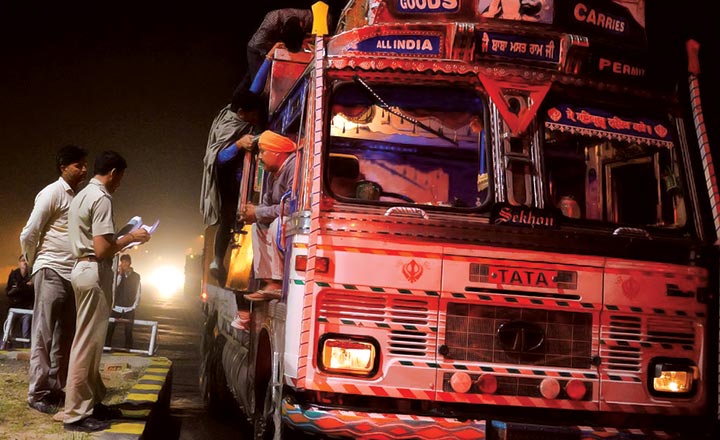Freight transport in this country could soon, indeed, get seamless. After doing away with multiple check posts across the country, the GST Council is all set to eliminate permits and routine checks. The GST task force, set up in 2017, has recommended putting an end to national and state permits, checks for road tax and pollution and fitness certificates.
The reform looks at cutting down on unnecessary costs that road delays lead to. In India, trucks cover a distance of only 60,000-100,000 km in a year thanks to transit delays. This delay amounts to $5.5 billion loss of annual revenue according to an earlier Outlook Business article on GST. If unforeseen fuel consumption due to stoppages and slow speed of vehicles are taken into account, the numbers go up to $12 billion every year.
The reform is in tune with the intent behind implementing GST in the first place — reduction of multiple taxes and easy and fast movement of freight. Although commercial tax check posts were removed from July 1, 2017, erratic checks were making the move redundant. By cutting down on physical checks, the government proposes the use of an e-bill (that will have details about the consignor, consignee, source and destination of goods) to identify vehicles through the Vahan and registration databases and RFID tags. It also talks about integrating all permit and tax charges into that bill, and rolling out a fitness certificate with one-year validity.
This seamless movement would mean an end to officials hackling truckers as they cross state borders. As of today, about 20 central and state government authorities including the RTO, VAT department, pollution control and forest department, have the authority to stop transporters and truckers midway. Uncalled for halts eat up unnecessary fuel, raise transportation cost and transit time. The All India Motor Transport Congress (AIMTC) has long been staging protests against the lack of transparency. Regarding the ongoing truckers strike and the one held a month back, Naveen Kumar Gupta, Secretary General of AIMTC said, “80% of Indian truckers are small trucking units, owning not more than five trucks. Apart from the heavy debts, transit delay, extra petrol and dealing with corruption on highways takes a toll on their purses. Their sustainability has become questionable now.”
With a major concern out of the window for transporters, they are looking forward to uniform petrol prices all over the country. With the government progressively open to reforms in GST, that doesn’t seem like an improbability.











